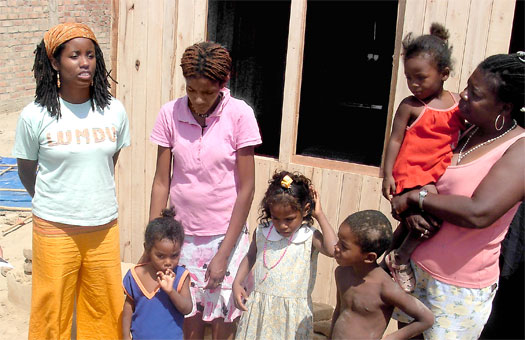My mother taught me to recite poetry at the age of three to help me deal with the racism she knew I would face in school. She migrated to Lima at the age of 15 from Puquiosanto, a town located on a delta where the Matagente River meets the ocean and forms an unruly lagoon. In Lima, she worked as a domestic employee. Until I turned 15, I spent four months out of the year in Puquiosanto and frequently visited El Carmen, a tourist community rich in Afro-Peruvian poetry and dance, where my father lived.
This rural experience, combined with life in a Lima neighborhood called San Martín de Porres—infamous as a center of drug trafficking—shaped my history and inspired me to find the common thread among these different geographies, people and experiences.
My mother’s lessons had taught me that education was the tool necessary for advancement and poetry a defense mechanism. Through his writings, my father taught me that my African descent could be a source of power.
In 2001, together with a group of Afro-Peruvians, I formed the Centro de Estudios y Promoción Afroperuano (LUNDU) as a platform to express and react to the racism we faced every day. Our members represent many different professions: journalists, domestic employees, accountants, and doormen, to name a few. All of us share a determination to end the stereotypical image of Afro-Peruvians as entertainers.
Nevertheless, art, poetry and music are the means through which we have expressed our resilience and recovery. In 2004 we created “Aesthetic in Black,” a project that seeks to create an appreciation of African aesthetics among Afro-Peruvian children and adolescents in rural and urban zones…





